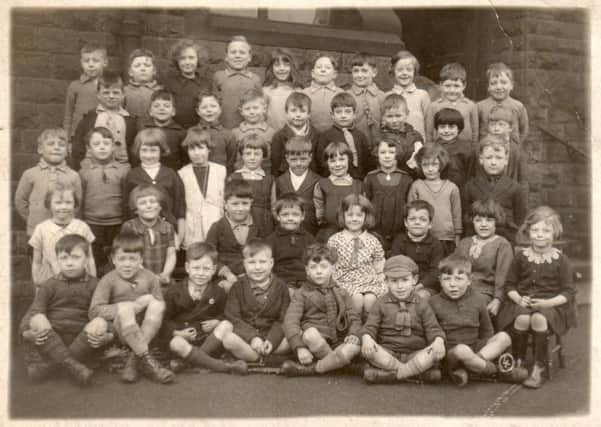Heritage: Pictures - Characters who made our Walkley streets come to life


Sheffielder Jasck Hambleton, aged 94, has been sharing his memories of growing up in Walkley in the 1920s and 30s.
I have always been proud to boast “I come from Walkley”.
Growing up in Industry Street, I have always regarded it as my street. It was a street with rows of Victorian terraced houses, with dark, narrow passages leading to a back yard, built at the back of a tall brick wall.
Advertisement
Hide AdAdvertisement
Hide AdFacing the back doors of the houses were the ‘privvies’ (lavatories).
The people living in the street were friendly, proud, and respectful. They enjoyed a good gossip but they did not scandalise.
They were caring people. If help was needed they were there. Scrupulously clean, their doorsteps and windowsills were pumiced with donkey-stone every Friday.
Industry Stree had its characters, people that made the street vibrate.
Advertisement
Hide AdAdvertisement
Hide AdTo have the local doctor visit anyone for the treatment of an illness cost money, instead our doctor and nurse was Granny Allen who lived at the bottom house in the yard.
She brought the children of the street into the world, she nursed them, or their parents when they were sick, and laid the older ones out when they passed away.
At the first sign of an illness during the day or through the night, Granny Allen was sent for.
She had her own remedies for curing whatever the ailment was.
Advertisement
Hide AdAdvertisement
Hide AdThe instant shock of hot bread-poultices wrapped in brown paper, when slapped on to her patient’s chest, was guaranteed to scare away any hacking cough.
A hefty dose of brimstone and treacle kept the bowels on the move and a boiled onion, minus its juice, pushed firmly into the ear may, or may not, have cured the earache but it certainly produced a hot flush.
She was so confident of her treatment that if she could not cure her patient she would say with a smile: “If that dun’t cure thi’, then stop thi’ breathing for 10 minutes, that’ll do it.”
Her payment was a jug of mild and bitter from the local beer‑off. Granny Allen was also fond of smoking a twist of tobacco in an old clay pipe.
Advertisement
Hide AdAdvertisement
Hide AdThe November council elections was the one time of the year when one of the street’s most colourful characters, Irish Jack, came into his prominence.
The candidates would appear at the church hall spouting what wonderful things they would do for the voters if elected.
The place would be packed, but not to hear the candidate, but to cheer on Irish Jack, who was no respecter of future lord mayors, or even prime ministers.
He would stand at the back of the hall shouting down to the candidates. His favourite heckle was: “Wot yer gunna do fer’ workers? Gerroff ye’ fat backsides and gerr’in ter’ works. Yer couldn’t even whitewash ah privvy.”
Advertisement
Hide AdAdvertisement
Hide AdThe hall would erupt with cheering, feet banging on the floor and the corrugated sides and the roof of the hall rattling, and the electric-light bulbs swaying. Irish Jack running down the aisles and on to the stage, raising his arms high to acknowledge the applause. “Vote, Vote, Vote for Irish Jack, the Champion.”
Schools were places of learning and discipline. I attended Burgoyne Road Council School.
The teachers were strict but respected. We gave them nicknames.
Mr ‘Hobby’ Hobday was headmaster, the teachers, ‘Piggy’ Trotman and ‘Quack’ Quastel and ‘Henry’ Read.
Advertisement
Hide AdAdvertisement
Hide AdWhether they ever knew of their nicknames we cared not. It would have brought a rare smile to their faces.
The road at the top of Industry Street was South Road, a continuation of Howard Road. It was so narrow that tramcars clanging along on iron lines ran almost on to the pavement.
The road was dominated on one side by St Mary’s Church, and the Ebenezer (we called it the ‘Ebesneezer’) Methodist Chapel, and the cinema, the Walkley Palladium.
There were rows of small, clean shops. Among those friendly shops was Wibberley’s, the butchers. Next door was Wass’s pastry shop, then Harry Rushby’s small, house‑windowed hardware shop.
Advertisement
Hide AdAdvertisement
Hide AdYou walked into Rushby’s to the clean smell of carbolic soap, bleach and soda, squeezing past rows of brushes and mops, and from the ceiling hung gleaming pots and pans.
Like most of the shops, a card was displayed in the window stating ‘Goods Laid Away’. The customer chose the goods, paid a small amount weekly and collected them when they were paid for.
Further along was Bothamley’s fish and chip shop and the Post Office, owned by two very charming sisters, the Misses Glaves.
At the end of South Road, at the tram terminus, was Ling Yu’s Chinese laundry.
Next door was that haven of peace and tranquillity, the Walkley Library.
You crept in trying not to breathe, silently chose a book, gave your ticket to the librarian, then crept out.